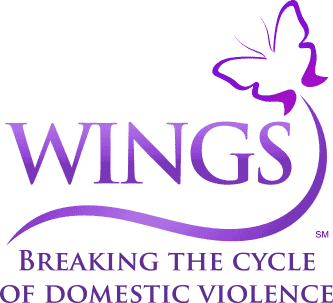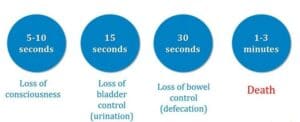Domestic Violence and Strangulation…4 Facts and 4 Myths
- Posted by Sarah Swiston
- On September 20, 2023
- breath play, choke hold, community-based services, dangers of choking, Domestic Violence, Domestic Violence and choking, Domestic Violence and Strangulation, domestic violence organization, Domestic Violence Services community, DV agency, End Domestic Violence, Hopsital Program, partner choking myths, safe to choke, Strangulation, strangulation myths, WINGS, WINGS Hospital Program, WINGS Program
Did you know that hospital emergency departments are often the first point of care for domestic violence survivors? WINGS Hospital Program provides crisis intervention to patients at four hospitals in the Northwest Suburbs. In addition to these bedside consultations, this program has a Medical Trainer on Intimate Partner Violence who is certified on the Danger Assessment. This assessment helps determine the risk a survivor has of being killed by the intimate partner. Strangulation is one of the most serious indicators that the violence will escalate. Read more below about domestic violence and strangulation, including 4 facts and 4 myths.
Due to the severity of the issue, WINGS has begun collecting data on whether Hospital Program clients had experienced strangulation. Of Hospital clients who have completed a survey, 21% disclosed that they had been strangled.
Bonus article from 3/13/24:
4 Facts about Strangulation and Domestic Violence
- Strangulation with the pressure of a firm handshake can result in death in one to three minutes.
 2. Death from strangulation can occur days or weeks after an attack from carotid artery dissection, blood clots, or stroke. It is important to advocate for CT and MRI scans of the neck and brain.
2. Death from strangulation can occur days or weeks after an attack from carotid artery dissection, blood clots, or stroke. It is important to advocate for CT and MRI scans of the neck and brain.
Kristina, WINGS Hospital Site Coordinator and Medical Trainer on Intimate Partner Violence shares, “Often people can underestimate the risk of a delayed fatality from strangulation. Some hospitals may not have a protocol in place for strangulation or they may not have the equipment needed for the recommended screening. Some medical professionals may be reluctant to order extra imaging for a patient with no visible injury. While at the same time, 50% of fatal strangulations had no physical signs.”
 The odds of homicide increase 750% for victims that have been previously strangled by their partner. If an abuser has access to firearms, the odds of female homicide increase by 1,100%.
The odds of homicide increase 750% for victims that have been previously strangled by their partner. If an abuser has access to firearms, the odds of female homicide increase by 1,100%.
Kristina shares, “One of the most striking quotes I used in my presentation is this from Casey Gwinn at the Training Institute on Strangulation Prevention… ‘We used to think all abusers were equal. They are not. Our research has now made clear that when a man puts his hands on a woman’s neck, he has just raised his hand and said, ‘I’m a killer’. They are more likely to kill police officers, their children and later kill their partners.’”
- The number one cause of death among pregnant women in the United States is homicide by an intimate partner.
4 Myths about Strangulation and Domestic Violence
- Myth: Strangulation is another term for Choking
- Strangulation: is the obstruction of blood vessels and/or airflow in the neck resulting in asphyxia.
- Choking: is a partial or complete obstruction of the airway often due to a foreign object, often food.
Often, survivors may not realize that they were strangled, they may disclose statements like: “I was choked,” “Made me pass out,” “Hands were on my neck,” “Sleeper’s Hold”, “Pushed up against a wall by my neck,” or “Breath Play.”
 Myth: If it was a serious injury there would be visible marks. The reality is that 50% of fatal strangulations had no physical signs.
Myth: If it was a serious injury there would be visible marks. The reality is that 50% of fatal strangulations had no physical signs.
Emergency care should be taken if the survivor feels any changes in their breathing, coughing, voice, neck, throat, tongue, eyelids, behavior, movement, and more.
- Myth: If you are able to speak, it is not strangulation.
- Myth: Strangulation is not harmful – MMA and Military use sleeper holds regularly. Strangulation always has the ability to become lethal in a short amount of time. Strangulation results in brain cell death within seconds.
What Should I do if I feel like I’m in danger?
Reach out for help. Call the 24-hour domestic violence hotline: 1.877.863.6338 or 847.221.5680. If it is immediate, call 911.
Learn more about WINGS Hospital Program here.
Help is available!
If you think you may be in an abusive relationship, WINGS is available to help.
The agency’s comprehensive approach ranges from emergency Safe Houses, Transitional Housing, Community-Based Services including mentorship and hospital partnerships and comprehensive children’s services. Click here to learn more.
Domestic Violence 24-Hr Hotline: 847.221.5680
To learn more about Counseling and/or Mentoring, call WINGS Intake Line: (847) 519-7828
Trained crisis workers answer the Intake Line Monday-Friday, 9am-5pm. If you should call outside of these hours, please leave a message and a worker will return your call the next business day.


0 Comments